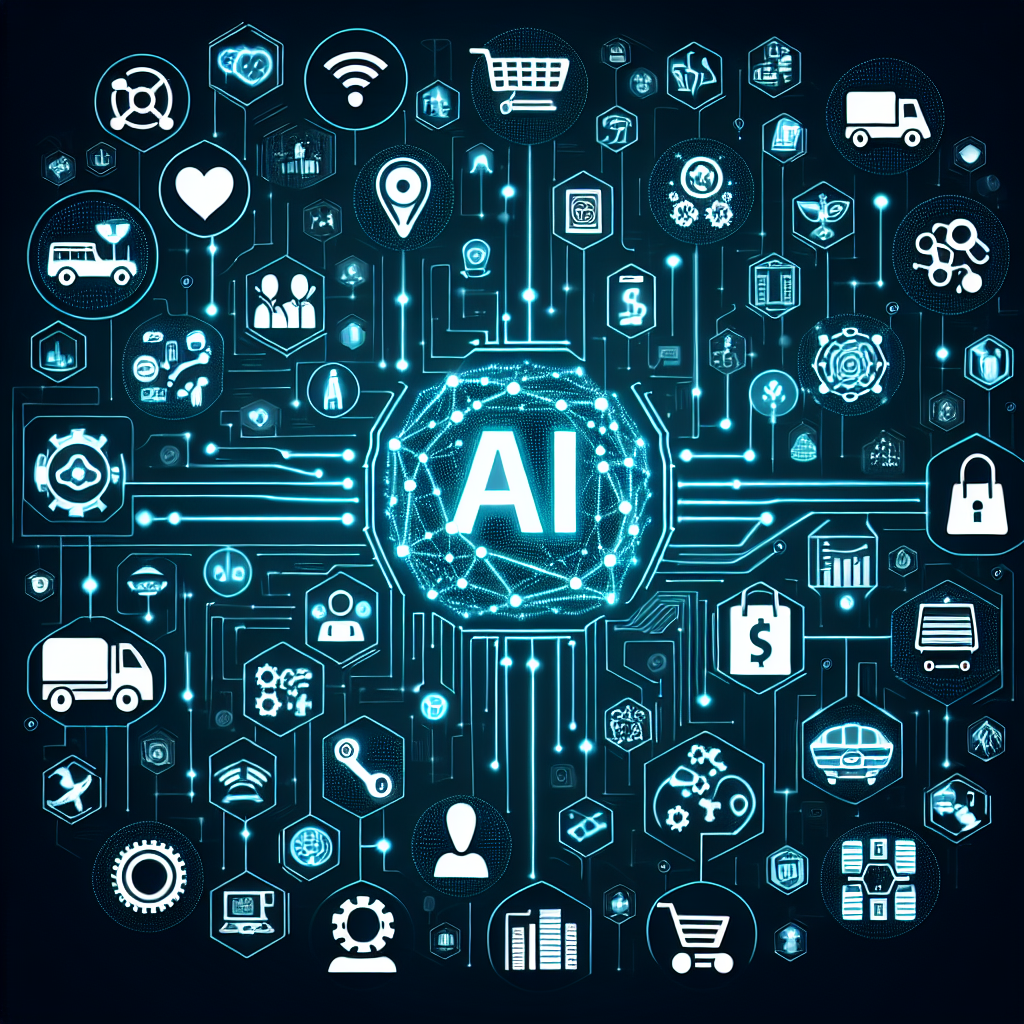Artificial intelligence (AI) has become a hot topic in recent years, with its potential to revolutionize industries across the globe. From healthcare to finance to manufacturing, AI deployment is transforming the way businesses operate and the way we interact with technology. In this article, we will explore how AI is revolutionizing industries and the impact it is having on the world.
Healthcare
One of the industries that has seen the greatest impact from AI deployment is healthcare. AI has the ability to analyze vast amounts of data quickly and accurately, which can help doctors make more informed decisions about patient care. For example, AI can analyze medical images to help detect diseases like cancer at an earlier stage, leading to better treatment outcomes. AI can also help doctors identify patterns in patient data to predict potential health issues before they occur, allowing for proactive intervention.
AI is also being used to improve the efficiency of healthcare operations. AI-powered chatbots can handle patient inquiries, reducing the burden on administrative staff and improving the overall patient experience. AI can also help hospitals optimize their resources by predicting patient admissions and discharge times, ensuring that they have the right staff and equipment available when needed.
Finance
The finance industry is another sector that has been transformed by AI deployment. AI algorithms can analyze market trends and data faster and more accurately than human traders, leading to better investment decisions and higher returns. AI can also help financial institutions detect fraud and money laundering by analyzing large volumes of transaction data in real-time.
AI-powered chatbots are also being used in the finance industry to provide customers with personalized financial advice and support. These chatbots can help customers with tasks like budgeting, saving, and investing, making it easier for them to manage their finances effectively.
Manufacturing
In the manufacturing industry, AI deployment is revolutionizing the way products are produced. AI-powered robots can perform tasks like assembly, quality control, and maintenance more efficiently and accurately than human workers. This can lead to increased productivity and lower production costs for manufacturers.
AI can also help manufacturers optimize their supply chains by analyzing data on factors like demand, transportation costs, and inventory levels. By making more informed decisions about their supply chain, manufacturers can reduce waste, improve efficiency, and increase profitability.
Retail
In the retail industry, AI deployment is transforming the way companies interact with customers. AI-powered recommendation engines can analyze customer data to provide personalized product recommendations, leading to increased sales and customer satisfaction. AI can also help retailers optimize their pricing strategies by analyzing competitor prices, demand trends, and other factors to maximize profits.
AI-powered chatbots are also being used in the retail industry to provide customers with support and assistance. These chatbots can help customers with tasks like finding products, placing orders, and tracking shipments, making the shopping experience more convenient and efficient.
Transportation
In the transportation industry, AI deployment is revolutionizing the way people and goods are moved from one place to another. AI-powered algorithms can optimize routes, schedules, and vehicle maintenance to increase efficiency and reduce costs for transportation companies. AI can also help improve safety by analyzing data on factors like weather conditions, traffic patterns, and driver behavior to predict and prevent accidents.
AI-powered autonomous vehicles are also being developed to revolutionize the way people and goods are transported. These vehicles can navigate roads, highways, and even off-road terrain without human intervention, leading to safer, more efficient transportation systems.
FAQs
Q: What is artificial intelligence (AI)?
A: Artificial intelligence is a branch of computer science that focuses on creating intelligent machines that can perform tasks that typically require human intelligence, such as visual perception, speech recognition, decision-making, and language translation.
Q: How is AI deployed in industries?
A: AI is deployed in industries through the use of algorithms and machine learning techniques that analyze large amounts of data to make predictions, recommendations, and decisions. AI can be used to automate tasks, optimize processes, and improve efficiency in a wide range of industries.
Q: What are some examples of AI deployment in industries?
A: Some examples of AI deployment in industries include using AI algorithms to analyze medical images in healthcare, using AI-powered robots for assembly in manufacturing, using AI-powered recommendation engines in retail, and using AI-powered algorithms to optimize routes in transportation.
Q: What are the benefits of AI deployment in industries?
A: The benefits of AI deployment in industries include increased productivity, lower costs, improved efficiency, better decision-making, and enhanced customer experiences. AI can help companies make more informed decisions, automate repetitive tasks, and optimize processes to achieve better results.
In conclusion, AI deployment is revolutionizing industries across the globe by transforming the way businesses operate and the way we interact with technology. From healthcare to finance to manufacturing to retail to transportation, AI is making a significant impact on how products are produced, services are delivered, and customers are served. As AI continues to evolve and improve, we can expect to see even more profound changes in the way industries operate and the way we live our lives.

